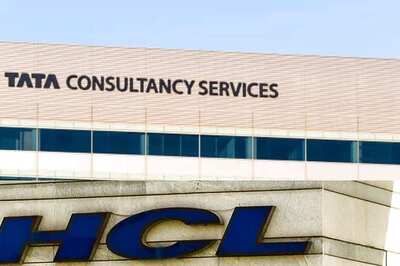
views
New Delhi:It may be an Indian consumer's dream cheap cars for $2,500-$3,000 within reach of millions of a swelling middle class. But it could also prove to be a traffic and environmental disaster.
Nissan Motor Co and Renault SA announced last week they were studying a $3,000 car to compete in India against Tata Motors Ltd's planned low-cost "People's Car" targeted at around $2,500 to hit the market next year.
For its supporters, cheap cars like these are what the Volkswagen Beetle was to Germany or the Mini to England, the spoils of an economic boom for aspiring middle classes. To its detractors, India will see an explosion in traffic and pollution on its already clogged roads from its more than 1.1 billion inhabitants.
It will add to India's carbon dioxide output just as many Western nations push the Asian giant to control emissions.
"India just can't cope with this kind of pace of expansion," said Anumita
Roychowdhury, associate director at the New Delhi-based Centre for Science and Environment.
"It's just not sustainable, whether from an environmental point of view or in terms of congestion. The World Bank this year said air pollution in India was already of great concern." added Anumita Roychowdhry.
India has low car ownership rates, which are seven to eight cars per 1,000 people compared to the 300-500 cars per 1,000 people in many Western nations. But annual passenger vehicle sales in India are expected to double to 2 million units by 2010.
In the capital alone more than two lakh vehicles are added to its streets every year, where they battle with cows, rickshaws and motorbikes for space.
It's all part of a middle class that will expand by 10 times from its current size of 50 million to 583 million by 2025, according to consultancy firm McKinsey.
Swelling Middle Class
"It's a colossal market," said India's well-known auto columnist Murad Ali Baig. "The low-price car market is already robust. One can only imagine what would happen when cheaper cars will be made available.
The government is busy trying to build and widen highways across the country, including a highway system that will link New Delhi, Mumbai, Chennai and Kolkata.
But air pollution is already at "critical levels" in more than half of India's main cities, according to the Centre for Science and Environment.
Environmentalists say that while new cars will have emission limits, these are still 10 years behind European levels.
"Cars in India will be on the road for between 10 and 15 years and no one will monitor to see if their emissions worsen over the years," said Roychowdhury.
"India is creating a car culture just when other countries are trying to learn from their mistakes," she added.
But many Indians who weave their motorbikes in between traffic would jump on the chance of the comfort of a car.
"If I can buy a 30,000 rupee scooter, then I can now hope to buy a car for 1,00,000 rupees when it comes out. Now, people like me can think about owning a car," said Aman, a 39-year-old chauffeur who earns about 7000 rupees a month.
(Inputs from Agency)




















Comments
0 comment